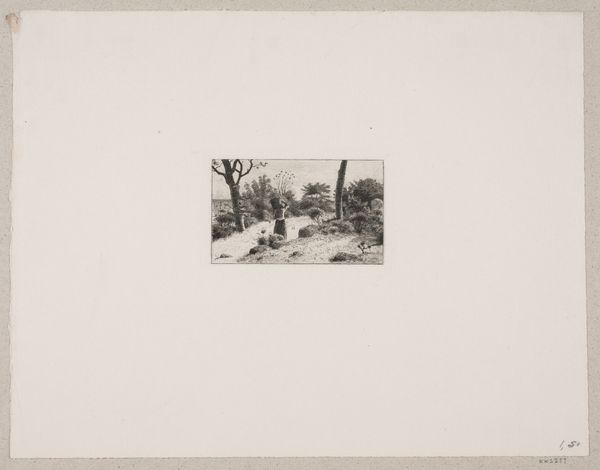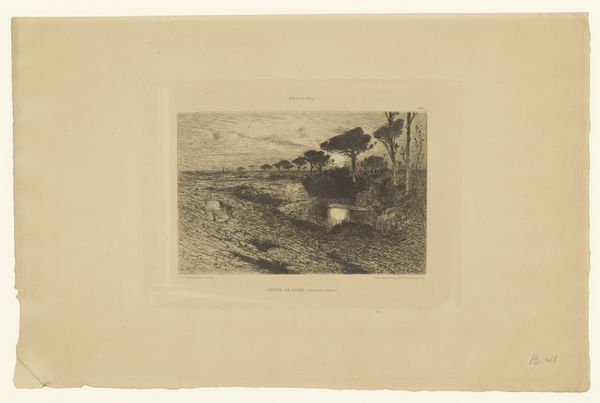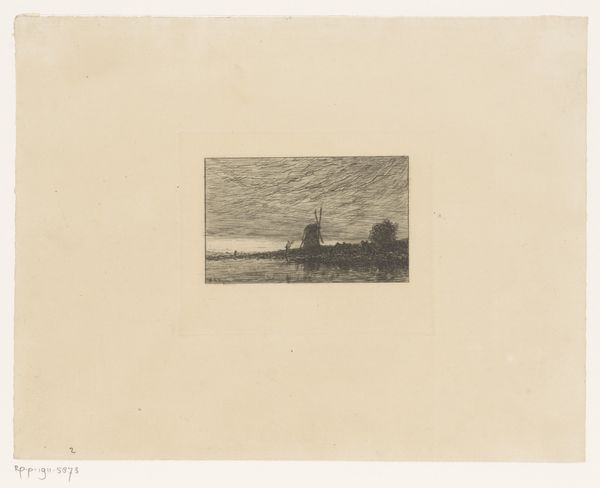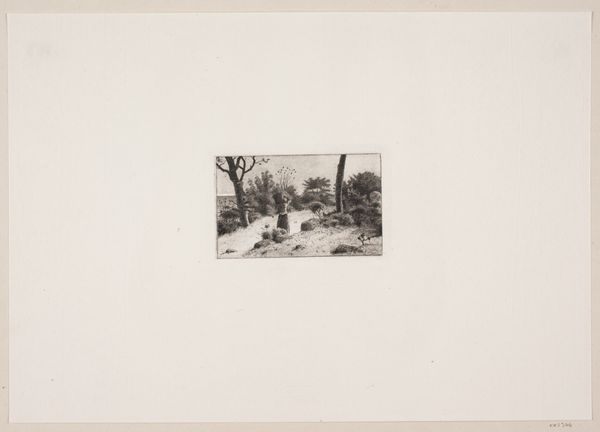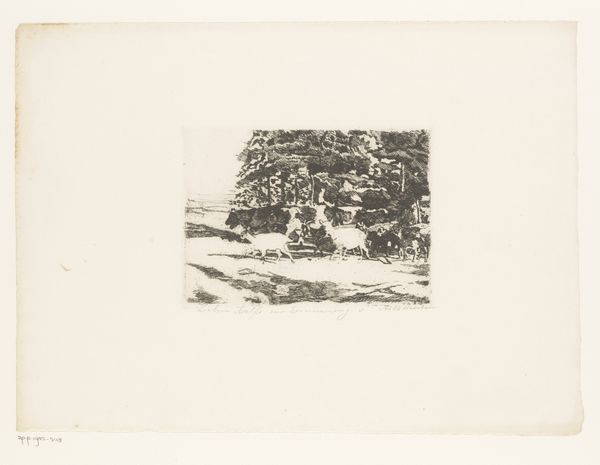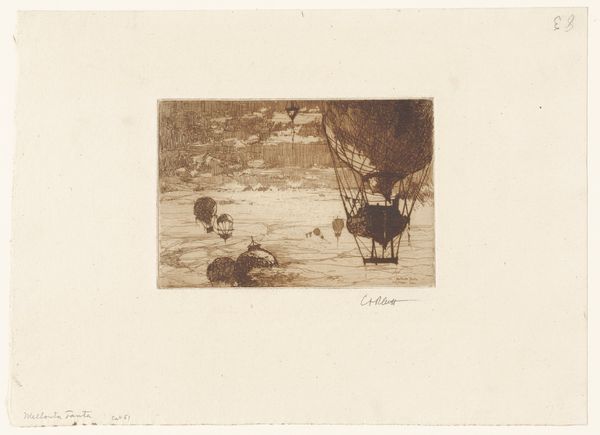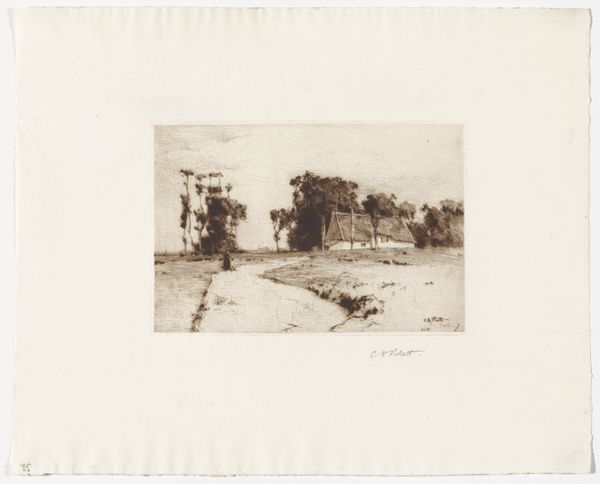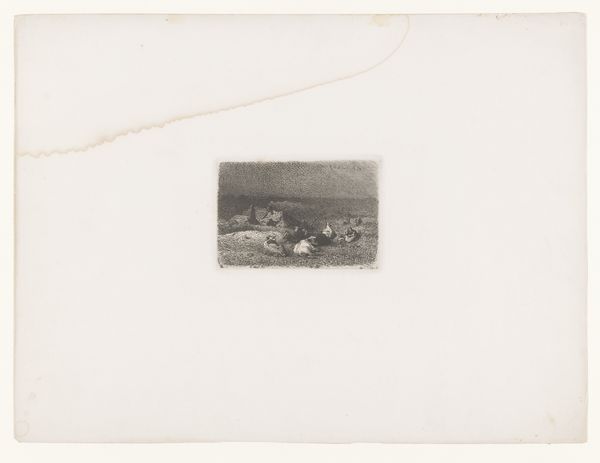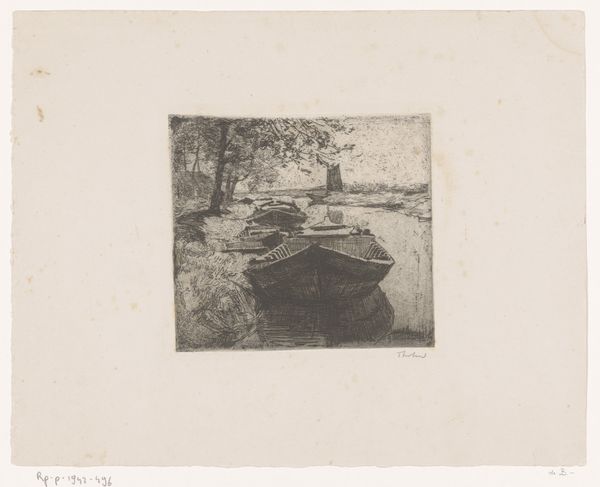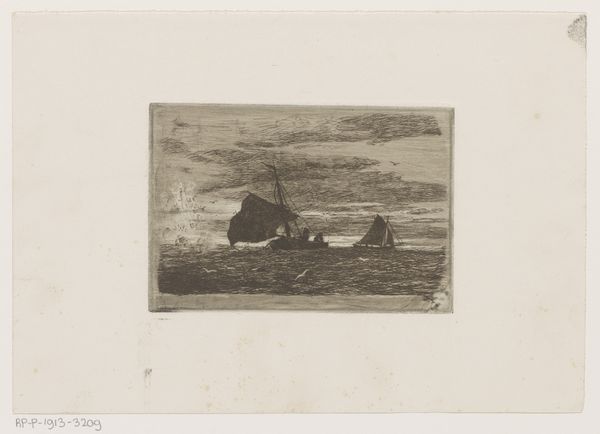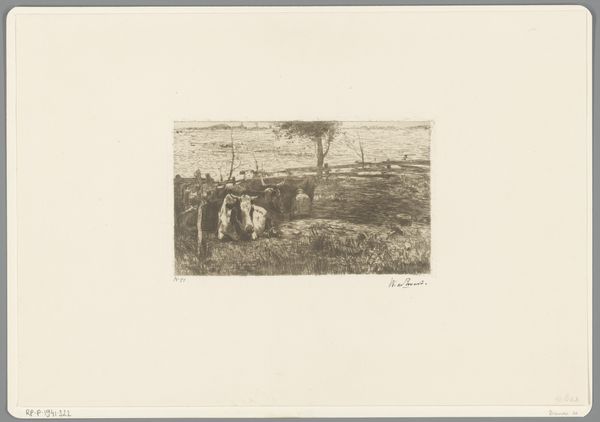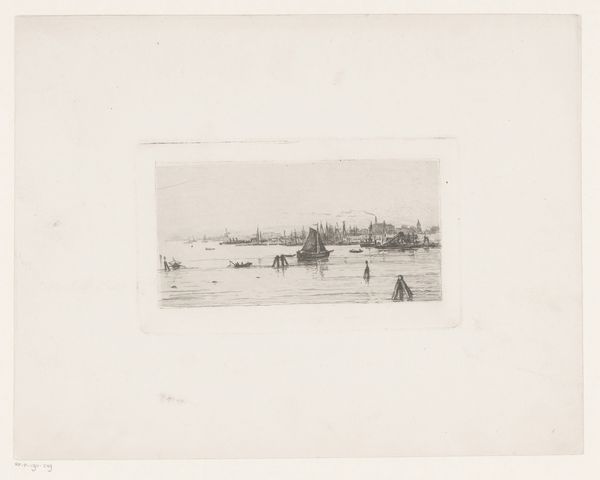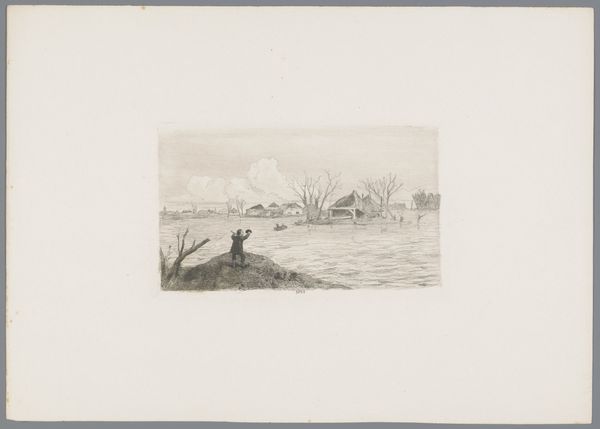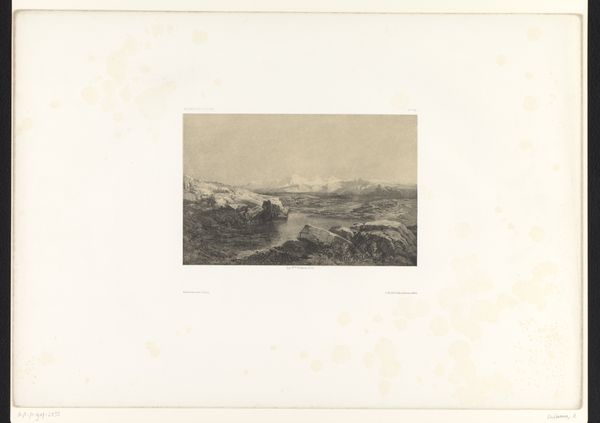
print, etching
# print
#
impressionism
#
etching
#
landscape
#
figuration
#
line
#
cityscape
Dimensions: height 150 mm, width 202 mm
Copyright: Rijks Museum: Open Domain
Editor: This is Willem Witsen's "Boats on the Thames in London," an etching from 1890. I find the monochromatic tones really create a hazy, almost dreamlike impression of the city. How do you interpret this work, looking at it through a historical lens? Curator: It's evocative, isn't it? Witsen's choice to depict London's Thames using etching allows for a layered interpretation, situating itself within a historical dialogue around industrialization and urban life. How does the subject matter speak to the concerns of late 19th-century society? Editor: Well, the boats and cityscape suggest trade and industry, key features of Victorian London, but there's a sort of somber tone. Curator: Exactly! Consider the social commentary present within impressionism, and the Thames as a crucial artery. Witsen offers a glance at modernity's relentless engine; industrial output, but also the consequences felt by working people due to pollution. What effect does the almost blurred impressionistic style of etching lend itself? Editor: It adds to that hazy atmosphere. Everything sort of blends together as one. It loses any hard definition. It reminds me of Turner's paintings of industrial England, but through a more gritty, graphic lens. Curator: A sharp connection! Witsen utilizes similar thematic material of Turner. However, in Witsen, it feels like the printing technique offers a democratizing feel—a way of communicating a shared feeling towards modern cityscapes across social classes in prints. Considering his association with the Amsterdam Impressionism movement, what message do you think the artist conveyed about life as a modern experience during a pivotal time? Editor: I suppose it's both celebratory and critical. The city is powerful, but its relentless advance perhaps overwhelms or obscures individuality and peace. I hadn't considered the socio-political aspects this deeply. Curator: These works offer avenues to examine the interaction of aesthetic expression with larger sociopolitical realities. It reminds us that art can shape the public's understanding. Editor: Absolutely, thanks for the new perspective. I now appreciate how Witsen comments on industrial London's complex social, economic, and political dimensions.
Comments
No comments
Be the first to comment and join the conversation on the ultimate creative platform.
